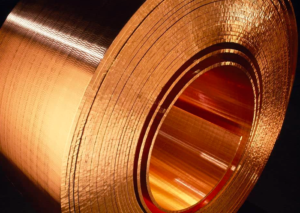Copper is a fascinating metal that has been used by humans for thousands of years. It has played a crucial role in shaping our civilization and continues to be an essential material in various industries. Here are five interesting facts about copper.

Ancient origins
The ability to easily shape copper into tools and weapons revolutionised human development, leading to advancements in agriculture, architecture and technology.
Antibacterial properties
Copper possesses remarkable antibacterial properties. Numerous studies have shown that copper surfaces can kill a wide range of bacteria, viruses and fungi within a few hours of contact.
This characteristic makes copper an excellent material for surfaces in hospitals, public spaces and even personal items like doorknobs and phone cases. It can also be woven into materials to give them anti-microbial properties.
Electrical conductivity
Copper is exceptional at conducting electricity. This makes it an ideal material for electrical wiring, power transmission and electronics. This conductivity has made it the metal of choice for electrical infrastructure, including power grids, motors, transformers and circuit boards.
Versatility
Copper’s versatility is remarkable, and it can be found in all aspects of life, from roofing materials to coins. Copper is an essential component in solar panels and wind turbines and copper pipes and copper pipe fittings are indispensable in plumbing.

Copper is colourful
Over time, copper develops a unique patina, a thin layer of corrosion that forms on its surface. This patina gives copper its distinctive greenish-blue colour and acts as a protective layer which prevents further corrosion. Many architectural structures, such as the Statue of Liberty, showcase the beauty of the natural colours of copper.
In conclusion, copper’s historical significance, antibacterial properties, electrical conductivity and versatile nature make it an important metal. From ancient civilisations to modern technologies, from copper wiring to copper pipe fittings, copper is an indispensable material that contributes to our daily lives and drives innovation in various fields.


